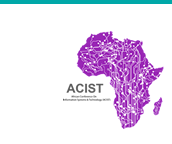Start Date
26-8-2021 12:00 AM
End Date
27-8-2021 12:00 AM
Description
Information technology (IT) usage is part of any modern organization be it a business, governmental or nongovernmental one. In a typical organization, investments on desktop and laptop computers, printers, telecommunication networks, database management systems and some specialized information systems (accounting, manufacturing, human resources, customer relationship, supply chain, etc) are commonplace. Bianchi et al (2021) stated that organizations have been using IT to automate and perform process integration, connecting the enterprise with customers, suppliers and distributors to obtain sustainable competitive advantage. Moreover, the pervasive use of technology has created a critical dependency on IT that demands considerable attention to IT Governance (ITG). Ghildyal and Chang (2017) argued that IT governance is an essential part of enterprise governance which is driven primarily by demand for transparency across enterprise IT related risks and protection of shareholder value. Aditya,et al(2018) also share the above view stating that in the era of digital transformation, IT risk is the main focus for top management, especially in business decision making. These clearly indicate that IT governance critically influences firm performance. Lazic et al(2011) also asserted that the fundamental importance of information technology (IT) in today’s business operations can hardly be refuted and while IT spending is constantly rising, the continuous debate surrounding the IT productivity paradox has decreased.
ASSESSING THE ROLE OF INFORMATION TECHNOLOGY GOVERNANCE (ITG) ON THE PERFORMANCE OF PUBLIC HIGHER EDUCATION INSTITUTIONS IN ETHIOPIA
Information technology (IT) usage is part of any modern organization be it a business, governmental or nongovernmental one. In a typical organization, investments on desktop and laptop computers, printers, telecommunication networks, database management systems and some specialized information systems (accounting, manufacturing, human resources, customer relationship, supply chain, etc) are commonplace. Bianchi et al (2021) stated that organizations have been using IT to automate and perform process integration, connecting the enterprise with customers, suppliers and distributors to obtain sustainable competitive advantage. Moreover, the pervasive use of technology has created a critical dependency on IT that demands considerable attention to IT Governance (ITG). Ghildyal and Chang (2017) argued that IT governance is an essential part of enterprise governance which is driven primarily by demand for transparency across enterprise IT related risks and protection of shareholder value. Aditya,et al(2018) also share the above view stating that in the era of digital transformation, IT risk is the main focus for top management, especially in business decision making. These clearly indicate that IT governance critically influences firm performance. Lazic et al(2011) also asserted that the fundamental importance of information technology (IT) in today’s business operations can hardly be refuted and while IT spending is constantly rising, the continuous debate surrounding the IT productivity paradox has decreased.



